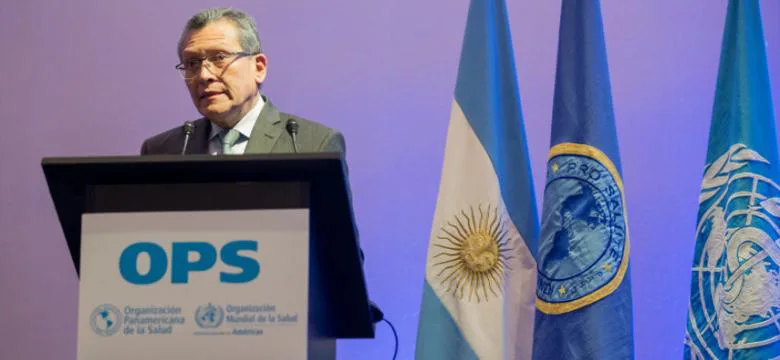
4th SARInet /SARInet plus Caribbean meeting
The recent COVID-19 pandemic has been yet another example that problems require cooperation dynamics that involve a multiplicity of actors of different nature and scope. Like all cooperation processes, those developed within the framework of the Respiratory Virus Surveillance, Diagnosis, Prevention and Control Systems, clinical management and immunizations will be strengthened if and only if each actor involved identifies that, to better perform its essential functions, it needs the good performance of the functions of the other members of the surveillance system. However, the identification of interdependence dynamics is not a simple and straightforward process.
Like any other system, respiratory virus surveillance, prevention and control, clinical management and immunizations systems are composed of units or agents that perform different functions, linked through information feedback processes. There are three aspects to consider make up the hard core of these surveillance systems. The first is associated with the functions performed by the different agents that make up the system, such as, for example, the functions inherent to laboratories, epidemiological surveillance, clinical management, data analysts, immunizations teams, policies decision makers and so on. The second aspect is related to the information that is processed among the agents through different communication channels or media; this information is relevant and fundamental for the verification of their mutual dependencies. The third aspect is related to the actions carried out within the framework of the surveillance system in order to contribute to the health, social, economic and political well-being of the communities involved.
One of the most important objectives of the PAHO/WHO Strategic Plan 2020-2025 establishes the commitment to support countries to build and improve their surveillance mechanisms and strengthen surveillance capacity for the detection of emerging and epidemic pathogens. Within this framework, PAHO has been working with its Member States to provide strategic guidance, technical support, and coordination of essential activities to strengthen their surveillance systems for influenza, SARS-CoV-2, and other respiratory viruses. This meeting will be coordinated by the PAHO Influenza Team and will be attended by Caribbean member states and technical experts from PAHO and WHO, U.S.A CDC and CARPHA, among others.
Justification
The Caribbean countries have strengthened their surveillance capacities during the SARS-CoV-2 pandemic. They have shown high surveillance and epidemiological skills, which involve active surveillance sites and contact tracing for COVID-19. Some countries in the Caribbean have implemented the WHO CC influenza-SARS-CoV-2 multiplex molecular diagnostic and have strengthened their genomic surveillance. New skills in clinical management and prevention practices have been developed and acquired. Health policies have occupied media and government space and new vaccines have been introduced through vaccination campaigns. The pandemic offers new challenges to strengthen its surveillance systems through influenza, SARS-CoV-2 and other respiratory viruses integration. Taking as a framework strengthening of influenza and SARS-CoV-2 surveillance, the 4th SARInet Caribbean countries will try to identify the mutual need of the different stakeholders to improve their performance and contribute to a better health and well-being of the communities they work for.
Objectives
- To identify the essential functions of epidemiological, laboratory, clinical and immunization teams and their mutual needs in the integration of the surveillance system of respiratory viruses to improve their performance.
- To develop a training course for professionals from the Caribbean Sub-Region working in epidemiological, laboratory, clinical management and immunization, in order to develop an action plan aimed at strengthening their surveillance, prevention and control systems and the clinical management of respiratory viruses considering their mutual needs.
- To favor the rooting of the existing national and international cooperation spaces and the emergence of new ones, which will result in the strengthening of the surveillance, prevention, control systems and clinical management of respiratory viruses in the Region.
